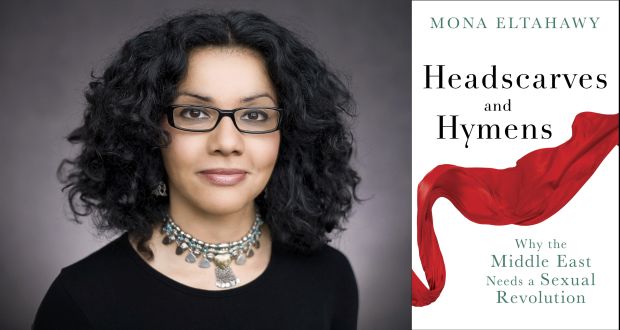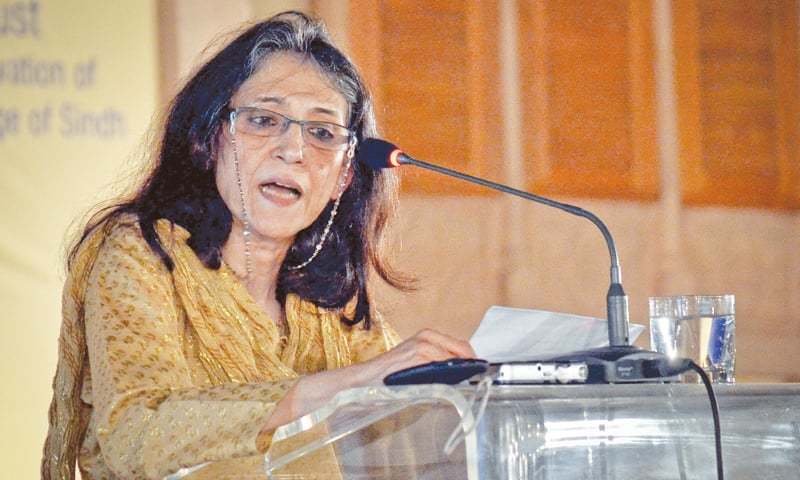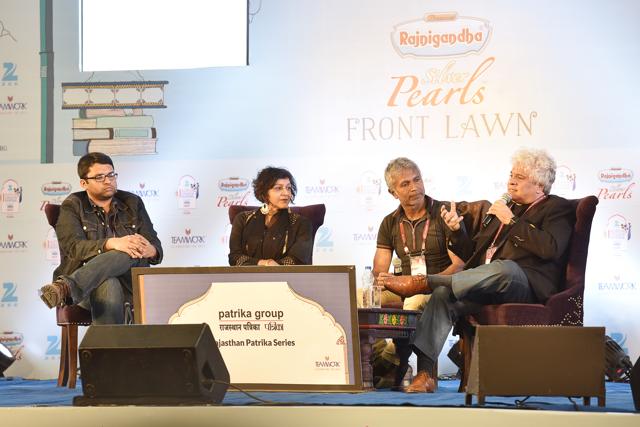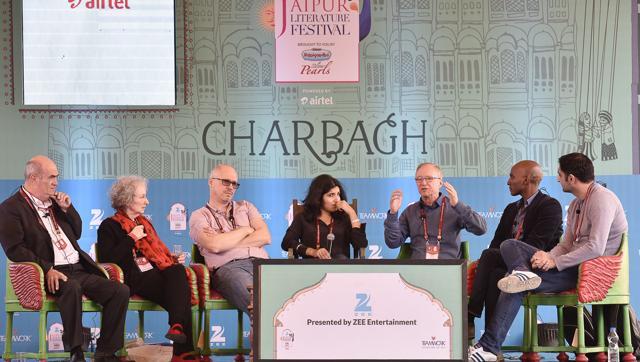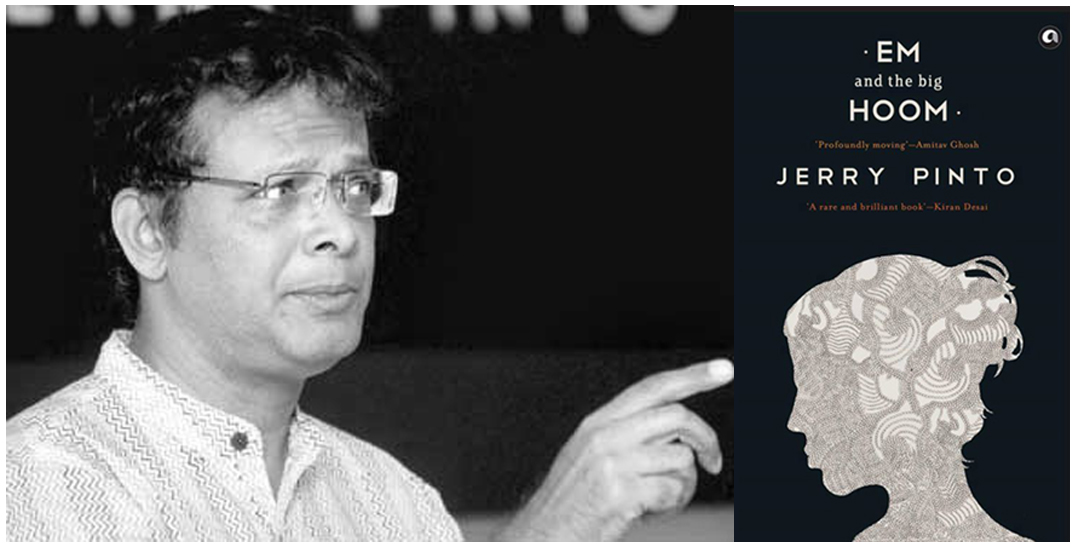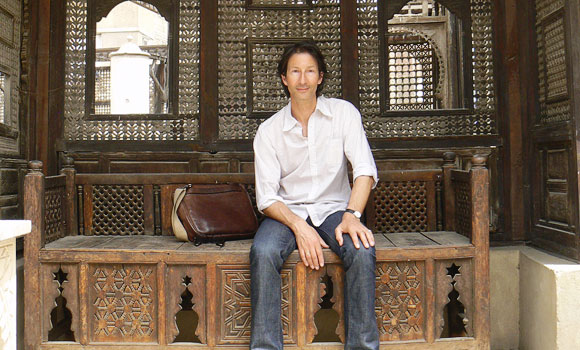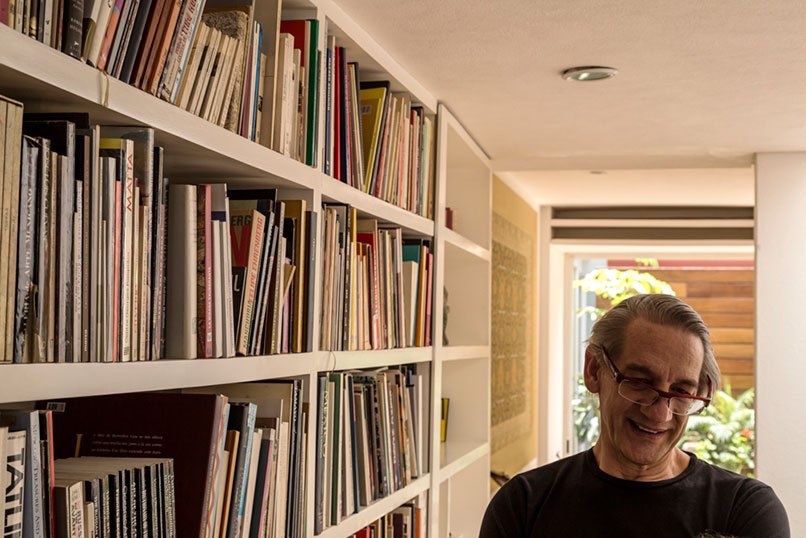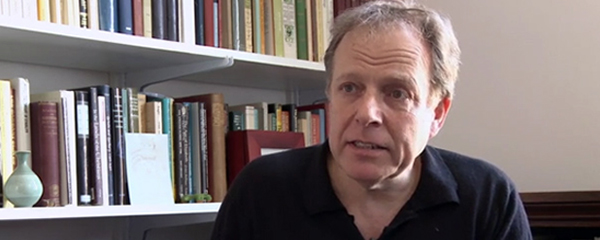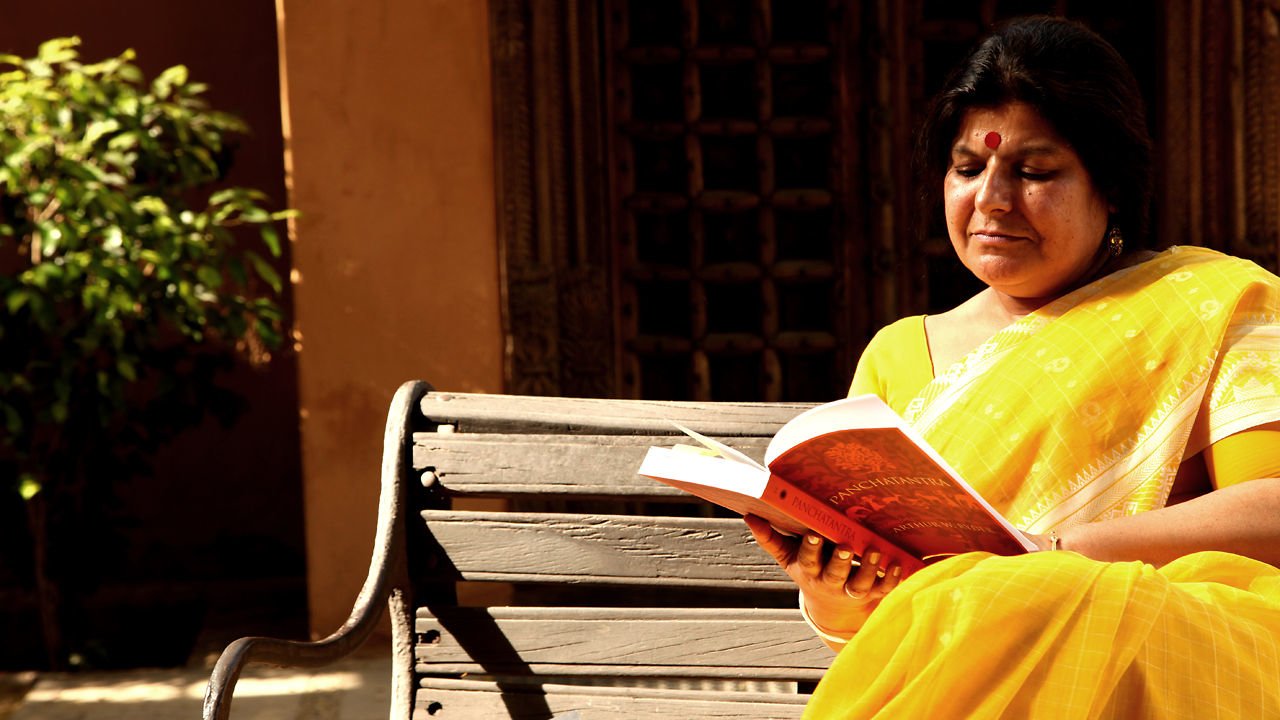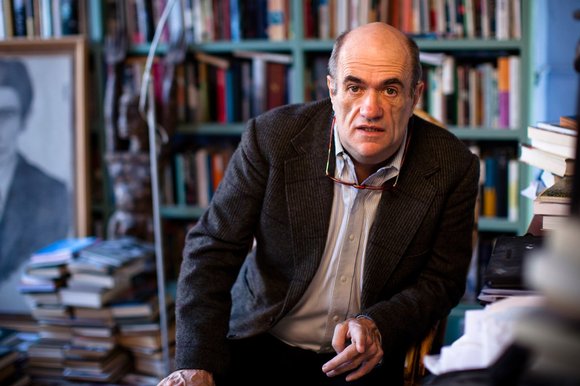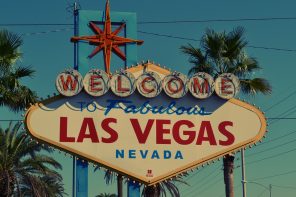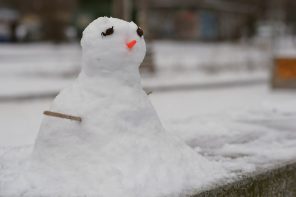Missed out on the world’s largest free literary festival and can’t follow everyone’s excited gushing? Or came out confused about which writers you wanted to look up, with all the commercialisation keeping you from the good bits? Either way, we’ve got you covered.
Every year since 2006, thinkers and writers from the world over come together at the magnificent Diggi Palace for the Jaipur Literature Festival to engage in debates, discussions and readings, and attract a lively, eager crowd that screams to be provoked and stimulated. As Lawrence Norfolk describes it, JLF is
part-circus, part-postgraduate seminar and part-revolutionary assembly.
So naturally every year, attendees go back home with myriad issues to argue over and a long list of writers to look up and read. If you missed the fest or just didn’t write it down, we’ve brought you our list of authors (in no particular order) at the Jaipur Literature Festival worth reading, beyond Margaret Atwood and Stephen Fry, or Gulzar and Javed Akhtar.
Of course, we cannot possibly feature them all, as nearly every writer there astounded us, but this should get you a good idea of what to read next. Get these readings done and you’ll be up-to-date and caught up on your JLF-homework in no time.
1. Mona Eltahawy
This feminist journalist from Egypt is zealous and full of the spirit of change. Mona Eltahawy raises her voice with no fear about the condition of women in the Arab nations and the lack of legal or governmental support for them regarding this. Not hesitating to point her finger at the true culprits, she also very courageously opens up about the violence she herself faced. As a woman
traumatised into feminism,
as she puts it, upon visiting Saudi Arabia, she demands that women’s issues not come last or get neglected in favour of other ‘more pressing’ problems. Her debut novel Headscarves and Hymens: Why the Middle East Needs a Sexual Revolution (2015) leaves no room for the West to turn a blind eye and attribute misogyny and the state of Arabic women to religious or cultural difference. It makes for a profound and scintillating read, sure to incite us all into action.
2. Ayesha Jalal
Pakistani historian Ayesha Jalal‘s recent book The Pity of Partition: Manto’s Life, Times, and Work across the India-Pakistan Divide documents her great-uncle Saadat Hasan Manto’s life and work, who has been described by William Dalrymple as
partition’s greatest chronicler.
Jalal’s book captures little-known details about his personal and family life- such as his alcoholism and relationship with his daughters, as well as his professional life- such as his time spent screenwriting. It also deals with more commonly known issues that Manto dealt with- the trauma and senselessness of the partition being at the fore.
Having grown up with Manto’s memory strong in her family’s mind, she recalls that she memorised the phrase “Upar di gur gur di annexe di bedhiyana di moong di daal of di Pakistan and Hindustan of di durr phitey mun” before she learned to speak, as she fills the hole he left behind with her novel that promises to be a moving read.
3. Marlon James
You may already know the genius that is Marlon James as the second Caribbean and first Jamaican to win the Man Booker Prize, or as the writer of A Brief History of Seven Killings (2014), a novel on the attempts on Bob Marley’s life. If not, crawl out of the rock you’ve been living under and read it! Having dealt with criticism for the subject matter and content, full of swearing and violence as the novel is, James remains true to his authentic work, which has been compared to a Tarantino film.
Spanning several decades, James’s third novel has been told from the perspectives of several different people, which is how he keeps things interesting, both for himself while writing, as well as for the readers who stay on their toes as they follow him. The spunky, witty writer talked at JLF about reactions from people in the West, who think he had to have been born in the US (and when he answers no, that he must have gone to university there). He also talked about his (comfortable) childhood, saying
You don’t have to see […] violence to be affected by it.
Also worth a read is fellow Jamaican writer Kei Miller, particularly his novel The Cartographer Tries to Map a Way to Zion (2014) in which he represents his dual identities as the cartographer and the Rastafarian in the book. People in his hometown attribute the former character to him, while Westerners assume him to be the latter. This conflict of identity is translated in his book, as in that of James.
4. Meera Syal
British-Indian actor and writer Meera Syal‘s books are an absolute laugh riot that accurately represent what life is like both living in Britain and growing up in an Indian family. In this way, she is able to capture the hearts of both groups of people. Her novels, as her TV shows, have a universal appeal since all families are the same; “everyone has a ‘The Kumars at No. 42‘ [one of her shows] at their home,” she says.
Her spontaneous and almost accidental charm and humour come naturally to her and she says of her team,
We write what we ourselves think is funny,
and they don’t try too hard to appeal to any particular category. She also talks about the growing comics from India, especially women such as Mindy Kaling, who are making a name for themselves as well as for the nation.
Syal’s books Anita and Me (1996) and The House of Hidden Mothers (2014) are unmissable representations of the Punjabi life in England.
5. Sulaiman Addonia
The UK-based Etritean novelist writes about the plight of refugees in Europe, having gone through the experience multiple times after moving successively to Sudan, Saudi Arabia and then London as a refugee. However, hope, he feels, “is ever-present in Europe” for refugees. His work The Consequences of Love (2008) explores this, succeeding in
capturing the authentic immigrant experience.
Addonia feels that a change in the mindset of citizens is necessary and discussed this at JLF, citing the example of the (little to no) rights of the vulnerable migrant workers in the Middle East.
6. Jerry Pinto
The poet and children’s writer seems to be unable to keep his foot out of his mouth at JLF. Enchanting the audiences with his jabs at just about everyone and crowd-pleasing jokes, he is a true entertainer, keeping all the viewers engaged. Brutally honest and wildly imaginative (He shares anecdotes about having his own name for everything- and not just when he was little.) Jerry Pinto is an utter thrill to watch and listen to.
He gives poignant advice on children’s writing, telling everyone never to preach as
Children always know when you’re being prescriptive or pedantic.
Further, he says on poetry that verse is always made with incompletenesses and suggestions.
His books Asylum and Other Poems (2003) and Em and the Big Hoom (2012) have been written with careful attention and exactness.
7. Laleh Khalili
This Iranian-American professor of Middle Eastern Politics speaks on the Arab Spring at the JLF and stresses that it is impossible to access its effects so early. At another session, she elaborates at length about the inhumane treatment of detainees at Guantanamo Bay, investigating the counterinsurgencies of the US. Laleh Khalili also discusses the detention camps and internment centres, rising under the farce of ‘protecting’ the people.
Her books Time in the Shadows: Confinement in Counterinsurgencies (2012) and Heroes and Martyrs of Palestine: The Politics of National Commemoration (2006) are enlightening, thought-provoking and chilling.
8. Anthony Sattin
The British journalist discusses, with audible awe and amazement in his voice, the life of Lawrence of Arabia. He engages with the spectators and keeps them as excited about the T.E. Lawrence of his youth as he seems to be- and he was excited enough to write two books about it! From the scandals of his English childhood, to how he picked up Arabic with little to no formal training, and speculations about his homosexual relations in Arabia, Anthony Sattin talks about the young Lawrence in great detail.
Further, Sattin reads from his novel The Pharaoh’s Shadow (2000) at the travel session, referring to it as a
distillation of my fascination with Egypt,
as he journeys through Egypt’s past to its conflicted present.
His books The Young T. E. Lawrence (2015) and The Gates of Africa (2003) are wondrous reads.
9. Alberto Ruy-Sánchez
The Mexican writer and editor talks about his work with such zeal that he sits at the edge of his seat when talking about his own worlds of fantasy. His eyes glisten with elation as he recounts his true life experiences that seemed to him stranger than fiction. As a traveller, an extraordinary experience to him would be mere reality for the locals, teaching him that magic is in the mundane. Ruy-Sánchez goes on to stress on the importance of creating a space for wonder, in isolation, calling it the
lonely business of writing.
He also talks about alienation in the ‘Magical Reality’ session, saying that viewing a familiar object with a foreign lens instantly transforms it, and transports the writer to another world from where to write.
His book Mogador (1987) as well as the 2009 and 2014 additions to it are fantastic, in more ways than one.
10. James Shapiro
The American professor of English and Comparative Literature gave two talks at the Jaipur lit fest on a contemporary Shakespeare. James S. Shapiro discusses the playwright’s works as an inextricable part of American history, as part of the country’s inheritance, referring to the history of the Bard in America as
also the history of America itself.
part of crucial issues such as homophobia, revolution and racism. While the first black man to portray Othello was the American Ira Aldridge, King Lear became a metaphor for American struggles between capital and labour. He says that Shakespeare’s works unite, as a medium to talk about uncomfortable subjects and as a
possibility of transcending that which divides us.
His novels Shakespeare and the Jews (1992) as well as The Year of Lear: Shakespeare in 1606 (2015) are simultaneously informative and riveting.
11. Paro Anand
Renowned children’s writer Paro Anand does not underestimate her readers, confident in their ability to grip and grapple with grim issues. At the same time, she believes strongly in not trying to hard to impress them (particularly teens, as they recognise artifice or someone trying too hard to be “hip,” she feels). She deals with issues such as disability through an allegory in her novel Wingless (2008), and about child abuse in Like Smoke (2015). Anand shares her secrets at JLF on how she manages to get across the tone of a teen, saying,
I eavesdrop. A lot.
Talking about the best compliment she ever received, Anand mentions that a teenager once wrote in to a magazine she was published in, saying “Finally, they have a teenager writing for teenagers.” She also shares stories from her own life, opening up about how her son was likely picked up by a terrorist group, hence leading to her inspiration for her book No Guns at My Son’s Funeral (2005), that deals with a young boy growing up with violence. Her novels, touching and intense, must be devoured by readers of any age.
12. Colm Tóibín
Irish writer Colm Tóibín lets his emotions and his Irish history leak into his novels and is able to write in a voice that is simultaneously tender and angry. One of his novels, Brooklyn (2009), has been made into a film. His suggestive silence and taut language has made him a favourite and earned him a following, particularly among fellow writers. Tóibín is openly gay and has delivered talks on being gay and coming out in both Ireland and Jaipur, pointing out the “layers of coming out.”
He also gives writing advice with his oft-quoted statement,
Ending a novel is almost like putting a child to sleep – it can’t be done abruptly.
Don’t miss his books The Testament of Mary (2012), also a play, and his newest Nora Webster (2014).
So there you have it. Now your reading list for the year is complete! We’re sure you can find a new favourite writer to fawn over in this list; we know we’ve found quite a few.
From Margaret Atwood’s unending wisdom and deadpan wit to Stephen Fry’s jovial humour, Thomas Piketty’s insights to Javed Akhtar’s inspirations, and of course, Suhel Seth’s unabashed bashing of anyone he can think of- the Jaipur Literature Festival is definitely an experience of a lifetime that affords much to take away from it. We offer you some of what we took away, and hope it delights you as much as it did us.


